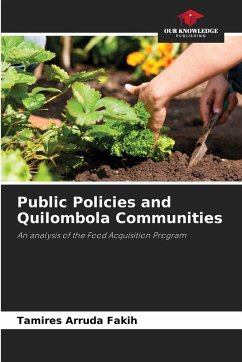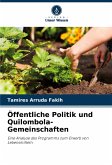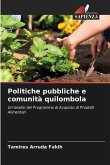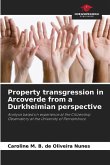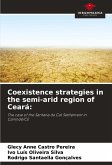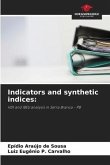The period of slavery was also marked by various forms of resistance by enslaved Black people to the system in place at the time, including escape attempts and the organization of former slaves in specific territories, forming what were known as quilombos or mocambos. From the 20th century onwards, the economy, culture, politics, and concept of the social organization of quilombolas began to be rebuilt. This study sought to understand the current reality of the Remaining Quilombo Communities in the Ribeira Valley, in the state of São Paulo, by analyzing the impacts and challenges of public policies implemented in these territories, especially the Food Acquisition Program.
Bitte wählen Sie Ihr Anliegen aus.
Rechnungen
Retourenschein anfordern
Bestellstatus
Storno

